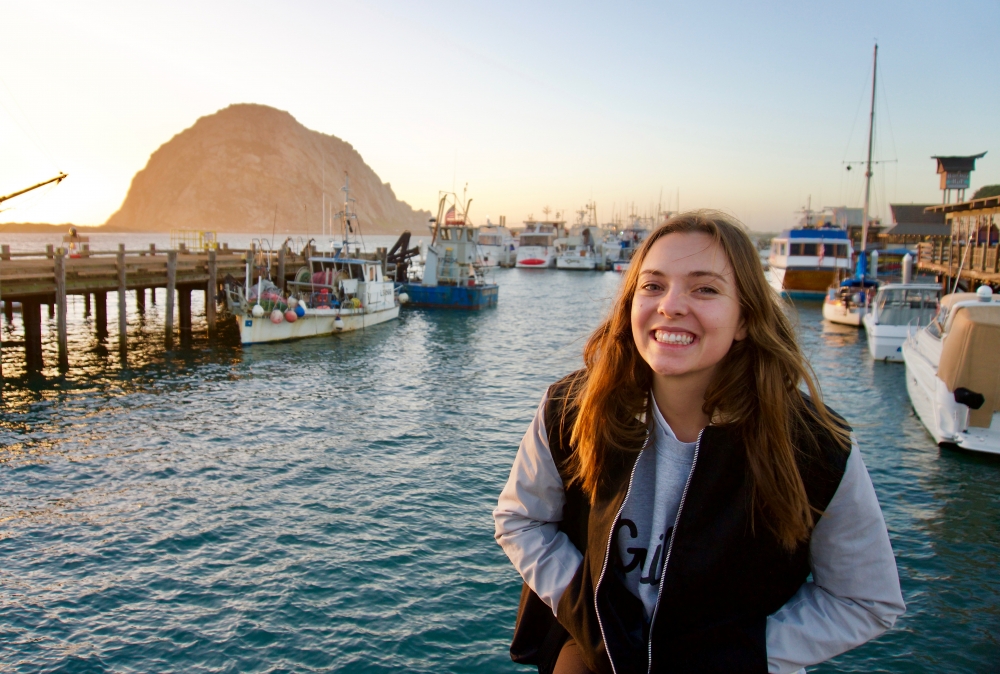
Going to The Hill
Not many researchers get an opportunity to present their ideas and concerns to Congress. But Mae Rennick, a graduate student researcher in the Halley Froehlich Lab at UC Santa Barbara, soon will.
Rennick has been selected to receive the 2022 Katherine S. McCarter Graduate Student Policy Award from the Ecological Society of America (ESA). She joins 43 other graduate students from across the country to participate in virtual Congressional visits taking place later this month.
“Mae’s research is really applicable when it comes to the science and policy interface,” said Halley Froehlich, an assistant professor in the Department of Ecology, Evolution and Marine Biology at UCSB. “This award is so well deserved and offers a really great opportunity for her to learn and connect to national policy efforts.”
“It’s an honor to be recognized for my work in policy and my ideas on how to align the federal government with ecological research goals,” Rennick said. “I am most excited to talk to California representatives on behalf of ESA and discuss ways in which science and policy can be mutually beneficial. This experience will no doubt improve my understanding of federal policy, strengthen my research and hopefully elicit more funding for ecological research moving forward.”
Offered each year, the award gives graduate students hands-on training and science policy experience, including interactions with congressional decision-makers, federal agency officials and ecologists who work in the science and public policy arena.
“Basically what happens is that ESA connects graduate students with their state or regional representatives to talk about how national funding can support research and scientific initiatives to create sustainable and ecologically beneficial systems,” Rennick explained. The program’s participants receive policy and communications training, including information on the legislative process, and in federal science funding. They also hear first-hand from ecologists currently working in federal agencies about their policy careers.
Rennick’s specialty lies in aquaculture, specifically sustainable seafood systems, and through her work in the Froehlich Lab, she is helping to develop a California state aquaculture action plan. It’s a hot-button issue, she said.
“There’s a lot of interest in how to make a sustainable seafood system utilizing aquaculture,” she said. “There’s also a lot of interest in federal funding and how to support research to create sustainable systems.” Her particular interest lies not only in how to make aquaculture ecologically sustainable, but also how we can sustain our seafood supply and make seafood accessible.
“I’m interested in talking about long-term funding … and that’s the niche the government can fill,” Rennick added. “They really have the ability to support long-term initiatives and long-term goals, which is what will be needed in order to achieve a sustainable seafood system.”
Currently, Rennick explained, California has a relatively small aquaculture sector, limited to only bivalves, mollusks, select seaweeds and some freshwater finfish. While the time is ripe for expansion, there is much work to be done to develop scientific guidelines that ensure expansion is sustainable and doesn’t clash with existing fisheries (both commercial and tribal) and marine protected areas that dot California coastal zones.
Rennick will address Congress Feb. 16-17 in “Virtual Hill” visits organized by ESA.
“It is very rewarding and encouraging to see our ESA graduate students interested in the science-policy interface and to hear directly from decisionmakers the importance of receiving critical information on the ecological systems that their constituents are interested in,” said ESA President Dennis Ojima. “The valuable, hands-on experience and listening skills will enable them to successfully engage in the policy realm.”



